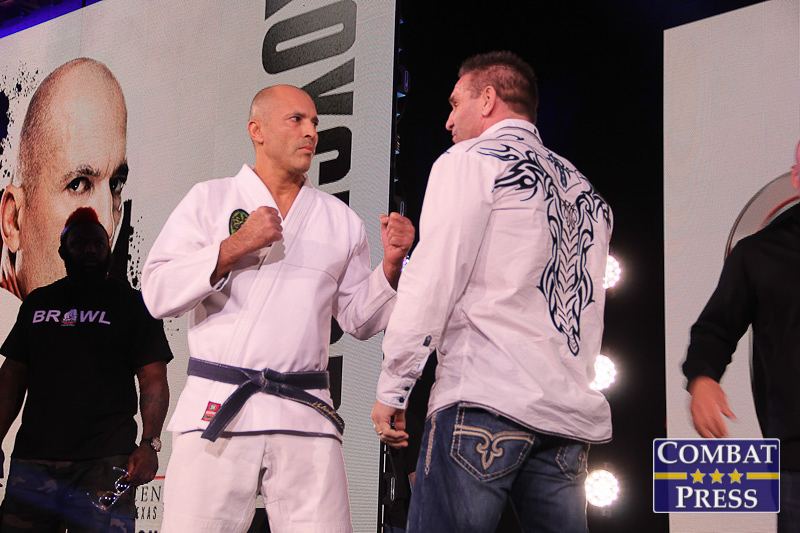Royce Gracie is undeniably one of the most accomplished fighters in MMA history. His heroics in the UFC’s infancy did a lot for the sport, but they also propelled his fighting style, Brazilian Jiu-Jitsu, into a position where it was almost synonymous with MMA as a whole.
For a long while, in large part thanks to Gracie’s dominance in the UFC’s golden age, MMA was a grappling-focused sport. There was still striking, sure, but the smaller Royce Gracie slapping chokes on people with a huge size advantage gave everyone pause.
Gracie’s success caused prospective fighters to flock to learn BJJ from the Gracie family. From there, dozens of submission-focused fighters entered MMA in both the United States and abroad. BJJ was the go-to discipline for a huge number of fighters.
Gracie himself ended up winning three of the first four UFC tournaments while various family members like Renzo, Royler and Rickson had entered the fray with mixed success. At the turn of the millennium, submission artists who were black belts in BJJ were popping up everywhere in some of the world’s most-watched events and were winning a lot more than they were losing. This was the peak for the Gracie family and the martial art they made famous.
Following that, everyone who was scared of being submitted joined BJJ schools to learn how to defend themselves from what were considered unorthodox submissions at the time. As Chuck Liddell became a serviceable wrestler, specifically to defend himself from takedowns, many fighters were effectively neutralizing their opponents’ grappling attacks.
This was a successful strategy which was reflected in MMA betting odds at the time. Still, there were plenty of black belts rising to prominence, but fewer and fewer were what one would call BJJ players. They had black belts in the style, but they were quite content in keeping the fight standing.
The legacy of Royce Gracie was tainted after his second-to-last pro fight, when he faced Kazushi “The Gracie Hunter” Sakuraba, a moniker earned after beating four Gracies in MMA, including Royce. Perhaps never given as much attention, because it happened so late in his career, or that it happened outside the UFC, but, after their fight at Dynamite!! USA in 2007, Gracie tested positive for Nandrolone, an anabolic steroid and performance enhancing drug (PED).Despite the positive drug test, Gracie denies ever using the PED, essentially giving a voice to many fans’ disbelief.
The very traditions of Gracie Jiu-Jitsu built their legacy on defeating opponents much bigger than them. No one but Royce Gracie can say with much confidence that he beat Sakuraba that night. The initial result in itself was controversial even before the ensuing failed drug test. Choosing the twilight of his career to use performance enhancers was brought about by his desire to honor the family name by avenging all his loses. Coming off the heels of being tossed around like a sack of potatoes by Matt Hughes, it’s not a stretch to believe that Gracie wanted to become a stronger athlete in hopes of avenging his previous loss to Sakuraba. Seeking redemption from a loss is a way of keeping the honor of Gracie Jiu-Jitsu.
Gracie likely didn’t cheat to stay relevant. He probably did so with revenge on his mind, in hopes of ending the Gracie Hunter’s spree after previously defeating Royce, Renzo, Ryan and Royler. At the time, Royce could have been financially strapped as well, but he definitely wanted the fight to honor his family traditions even if it meant possibly dishonoring them in the process. Resuming his fighting career wasn’t something that developed out of necessity, as the failed drug test ultimately resulted in little to no financial hardship.
While Gracie and his ancestors have a spot in history, their direct influence in MMA has become somewhat mainstream. Brazilian Jiu-Jitsu is not as feared as it was, and is practiced by almost all fighters. This trend is incredibly unlikely to reverse course.
This, though, is the nature of sports. The game is evolving and, at this point, the Gracie family’s contributions have been absorbed into the sport as a whole. While their influence can still be found in the sport’s history, the name does not hold the weight it once did.

